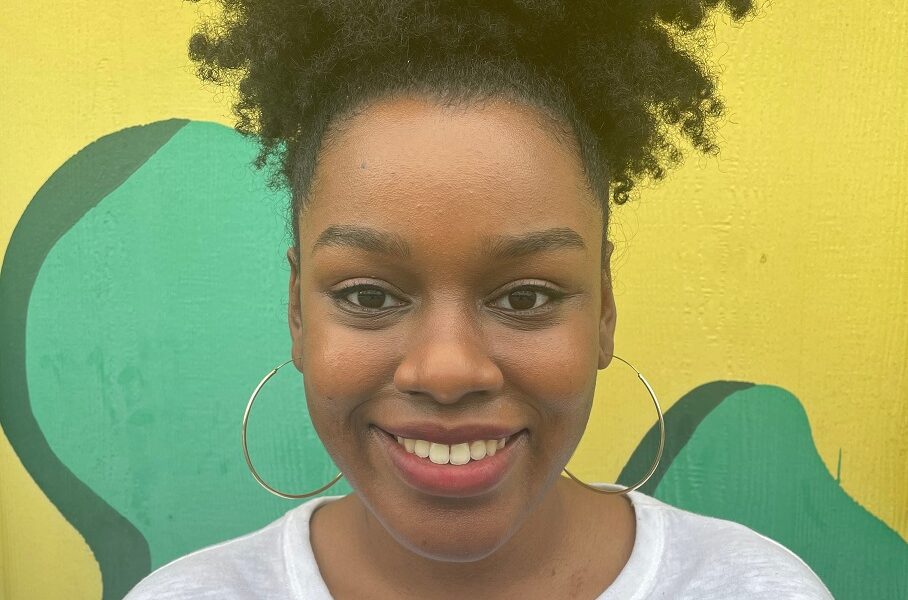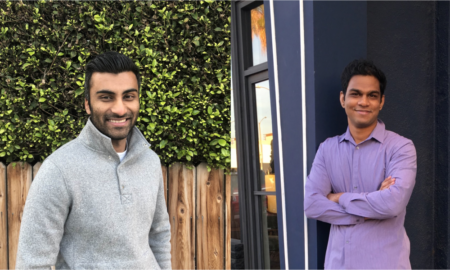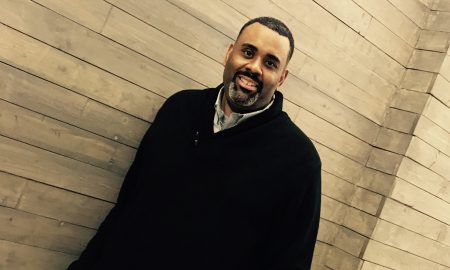

Today we’d like to introduce you to Sydney Warner.
Hi Sydney, we’re thrilled to have a chance to learn your story today. So, before we get into specifics, maybe you can briefly walk us through how you got to where you are today?
For as long as I can remember, I have had an interest in culture and language. One of my earliest school memories is when the class would “take a flight” to a different part of the world (or even outer space)! My teachers would rearrange the chairs in the classroom to imitate an airplane flight. Our teachers acted as flight attendants that served us snacks, and when we “landed,” we would receive an engaging lesson about our flight destination. I got excited each time they gave us our “plane tickets” and knew we would learn more about the world around us. As I continued my academic career, I realized that I wanted to share the same excitement I felt as a child about learning culture/language with other young children. It wouldn’t be until high school that I was finally able to make this desire a reality.
The summer before my senior year of high school, I began the process of creating an educational program for elementary schoolers titled: “Las Culturas del Mundo” (The Cultures of the World). This program was founded with the intention of exposing K-5 students to Hispanic cultures and the Spanish language. This was especially important to start in my county, as a student’s first introduction to a foreign language/culture usually starts in the eighth grade. I fostered relationships with three of the afterschool directors of elementary schools in Henry County that were willing to welcome my program. I reached out to their respective feeder high schools to gather volunteers. I created original lesson plans for the fall and spring semesters, worked with each school to ensure high school volunteers could use their volunteer hours towards community service requirements and spoke with professionals at the Henry County Board of Education to ensure my lessons and materials would serve the students properly. Eventually, my project was up and running: twice a week for thirty minutes, K-5 students received instruction from either my volunteers or me on various topics related to the Spanish language and Hispanic culture.
At the end of the year-long program, each school held a showcase for students who participated in my program. Students acted out a skit and sang a song in Spanish to show how much they’d learned. This experience was everything I imagined it to be; kids who were originally reluctant to learn anything non-American now enjoyed the lessons learned and looked forward to learning more. The skills they managed to learn in that short period of time are considered some of the most important tools needed to interact in a global world, called global competency. Global competency refers to the appreciation and understanding of diverse walks of life, which ultimately helps students become more open-minded and well-equipped to handle situations where people have differing opinions or behaviors. After seeing the benefits of my programs being enacted in three elementary schools, I knew I wanted to spread the program county-wide. After a meeting with the Henry County Board of Education, that goal was also accomplished – although COVID-19 halted all extracurricular and afterschool programs, I hope to bring the program back to its full capacity as soon as possible.
Since I began the program in my senior year of high school, I wasn’t able to supervise or work closely with the program when I went to college. I passed down leadership to students still in high school and felt… incomplete without my involvement in the program. It took another year of a tug at my heart before I was finally given the opportunity to work with children on culture and language studies. In the spring of my second year at Emory University (January 2021), I was able to continue a relationship with one of my students from “Las Culturas del Mundo” and his younger brother, who were interested in taking Spanish lessons. I went through the same process I did when I created the program in high school, except I had to adjust my plans for a virtual setting. I made lesson plans, presentations, and activities that would engage the students. As the end of the semester approached, I knew that my passion for education could not be sated, and I look forward to continuing Spanish lessons for the rest of my college career.
We all face challenges, but looking back, would you describe it as a relatively smooth road?
Creating a program from scratch was hard. In fact, the majority of the process was in no way a “smooth road.” Since I was a high schooler, I really had to prove my professionalism and how serious I was about making my program become a reality in afterschool programs. I spent hours upon hours perfecting my lesson plans, calling schools, reaching out to students, and going back and forth via email to make the program happen before the school finally started that fall. Once the program was up and running, the challenges I faced became about the social interactions between students and volunteers.
The children, at first, showed very little interest in anything I had to say about Hispanic culture/Spanish language. Many of the same questions and complaints popped up through each lesson: “‘Why do we need to know this stuff?’ ‘Who cares?’ ‘I don’t get it, I want to play outside.'” Sometimes, the comments got a bit discouraging, but I knew that children generally have short attention spans and little patience for things unfamiliar to them. Keeping this in mind, I played to the interests of the students by making activities they would want to participate in, like contests, storytime, and other interactive ideas. Slowly, the complaints changed from, “Do we have to learn Spanish again?” to “When are you coming back!?” It was inspiring to see the change in attitude most students had from the beginning to the end of the program.
For the volunteers, I tried my best to ensure that my expectations were clear: volunteers needed to be timely, engaged, and prepped for the lessons they taught each week. It took a bit of time for volunteers to grasp exactly how important these traits were, but I received notes after the program ended telling me how happy they were to volunteer with the program and how it opened some students’ minds to potential career pathways and other interests.
Currently, with my lessons being virtual, I came across some of the challenges I’m sure teachers everywhere faced with the abrupt transition to online learning due to COVID-19. Creating games and activities that kept students engaged proved a challenge, and I worked to change and edit my previous ideas to better suit my students’ interests. Throughout the semester, I took note of what worked and what didn’t to fine-tune my lesson plans and ideas for the future.
Thanks for sharing that. So, maybe next you can tell us a bit more about your work?
I will be a third-year at Emory University in the fall, double majoring in Environmental Science and Spanish on the pre-med track. My interest in education has allowed me a unique perspective on the medical field and how it relates to our environment and cultures everywhere. I find the themes of communication, science, and the arts constantly overlapping in my everyday life.
Currently, I conduct research in an environmental lab that works to determine potential contaminants in soil. At first glance, that topic probably sounds extremely boring or even weird to most people. But what people don’t realize is that contaminated soil has a direct effect on the health of residents living in that area, especially the children that play in that soil. Because of the threat to human health, soil analysis is helpful to educate community members about the dangers around them. It also provides initiative to the community to push for better quality resources and funding. While interacting with community members, my attention to communication style and language helps make these relationships more easily cultivated. In every aspect of my life, I incorporate the ideas of culture and language as necessities to make people feel included in hard conversations that center around scientific and health-related topics.
How do you think about luck?
I like to call bouts of “luck” actual blessings that I’ve received. Some of these blessings include my ability to convey the importance of exposure to cultural education at a young age to the right people at the right time. If the schools I contacted denied my access to their afterschool programs, nothing would’ve come of my project. If one of the mothers of the students I taught in my afterschool program didn’t find my lessons helpful, I wouldn’t have been able to continue tutoring in my college years. I am forever grateful to the people who opened the doors that made my dream come to fruition. Even the transition to virtual learning is considered a blessing, as it pushed me to be even more creative in my delivery of content/material.
Contact Info:
- Email: kitswar08@gmail.com




Image Credits:
East Lake Elementary Kindergarten Students Treandos and Noah Thornton















